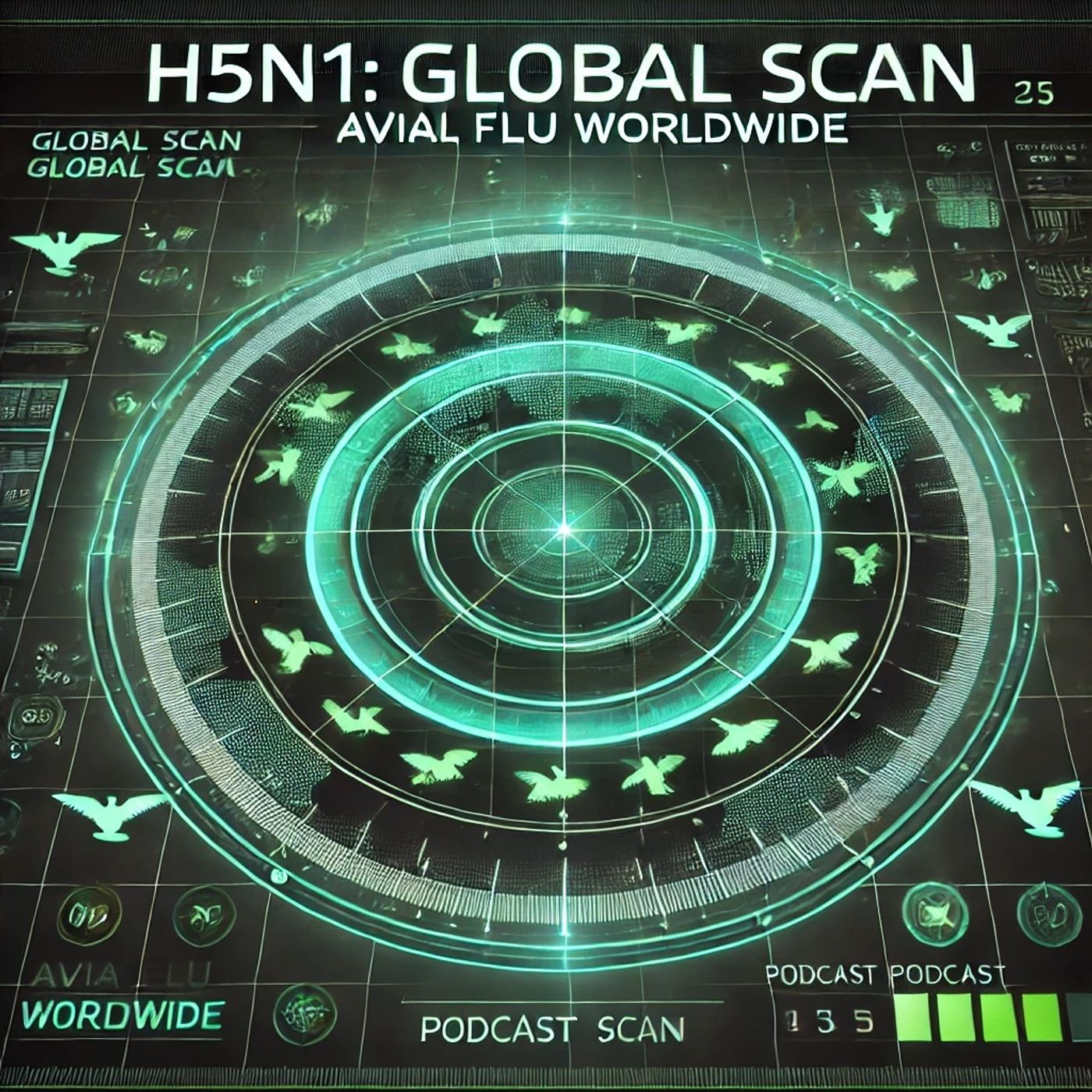Podcast Episode Details
Back to Podcast Episodes
H5N1 Avian Flu Spreads Globally: Unprecedented Outbreaks Across Continents Spark International Health Concerns in 2025
This is H5N1 Global Scan: Avian Flu Worldwide. I'm your host, bringing you the latest international perspective on the ongoing avian influenza H5N1 emergency.
The world is facing another critical year in the fight against H5N1 avian influenza. According to the World Health Organization, from 2003 through January 2025, there have been 964 laboratory-confirmed human cases across 24 countries, with a devastating case fatality rate near 49 percent. The virus’s path is global, with outbreaks now recorded on every continent except Australia and Antarctica as of this past year.
Let's break down the situation by continent. In **Africa**, countries like Egypt continue to report sporadic human infections, mainly linked to rural poultry contact. Moving to **Asia**, Cambodia and India have both reported fatalities this year, while in China, ongoing surveillance targets both wild and domestic birds. **Europe** experienced another challenging season, with thousands of poultry outbreaks, especially in France, Germany, and the UK; notable was the detection of H5N1 even in sheep. In the **Americas**, the United States saw H5N1 outbreaks in wildlife, poultry, dairy cattle, and several human cases, including a fatality in Louisiana. Central and South American countries such as Chile, Ecuador, and Mexico have also confirmed their own outbreaks and occasional human cases, highlighting the risks of cross-border transmission.
International bodies set the stage for global coordination. The joint Food and Agriculture Organization and World Health Organization 2025 statement maintains the overall risk to the public as low to moderate, but occupational risk for those working with animals remains substantial if proper measures are lacking. The World Organization for Animal Health reports that over 4700 H5N1 outbreaks in animals were tracked in the Americas region alone since 2022. There’s urgent concern about the spread into mammals—dairy cattle in the US, sea lions in Peru, and even companion animals in Europe—prompting warnings about potential genetic reassortment and future human adaptation.
Cross-border transmission and trade impacts are immense. Since 2020, more than 20 million poultry have been culled in the US alone, causing egg shortages and economic shocks. Many countries have enacted temporary bans on poultry and egg imports from affected areas, straining international supply chains. Trade disruptions ripple from Argentina’s farms to Asian markets.
On the research front, the international scientific community is ramping up genomic surveillance. The WHO and partners are prioritizing the rapid sharing of viral sequences to monitor mutations, while institutions in the US and Europe accelerate studies of mammalian transmission. New vaccine candidates are undergoing trials, but as of September 2025, no universal H5N1 vaccine for humans is licensed. Several veterinary vaccines are in use to curb outbreaks in birds, but their global rollout remains uneven due to differences in regulatory approval and resource allocation.
Comparing national containment approaches, the US emphasizes aggressive culling and biosecurity in agricultural settings. The European Union blends surveillance, movement restrictions, and vaccination in high-risk zones. Countries like China invest heavily in both poultry vaccination and real-time outbreak monitoring, while resource-limited nations often rely more on rapid culling and international aid.
That wraps up our global scan of H5N1 avian flu—an evolving crisis weaving together public health, food security, and trade. Thank you for tuning in to H5N1 Global Scan: Avian Flu Worldwide. Join us next week for more in-depth international health coverage. This has been a Quiet Please production. For more, check out Quiet Please Dot A I.
For more http://www.quietplease.ai
Get the bes
Published on 1 week, 5 days ago